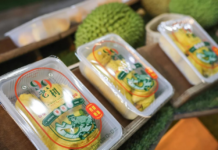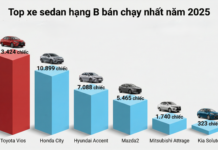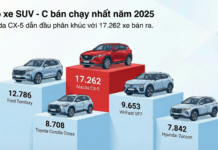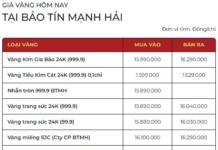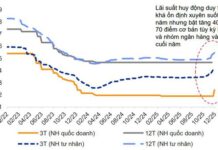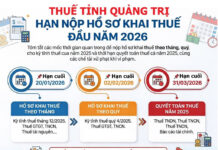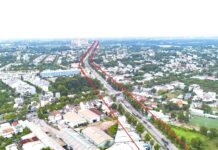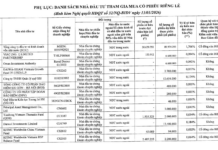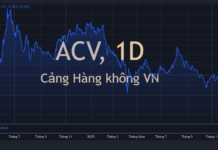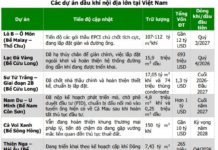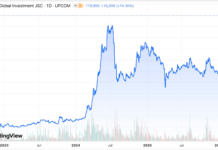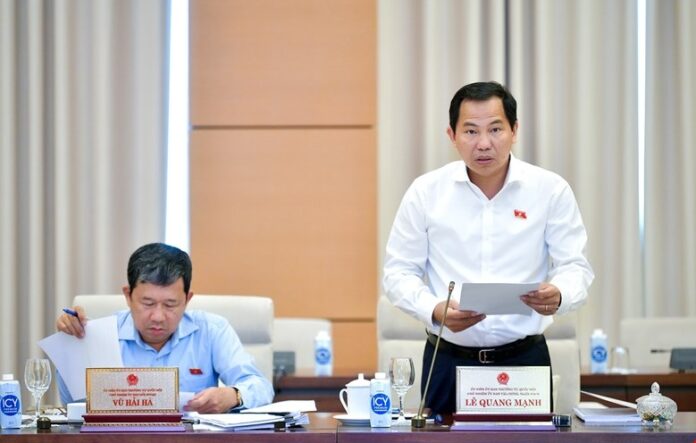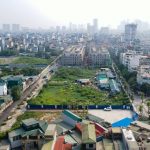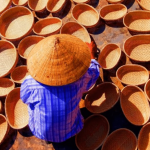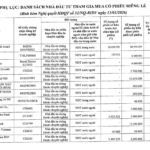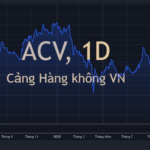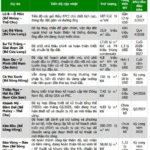On August 14, the National Assembly Standing Committee discussed several key issues regarding the explanation, adoption, and revision of the draft Law on Value Added Tax (amended).
Two Perspectives from the Reviewing Agency
Regarding the proposal to not transfer fertilizers and agricultural machinery and equipment from tax exemption to the 5% VAT rate, Mr. Le Quang Manh, Chairman of the Finance and Budget Committee, stated that there were two opposing views within the committee.
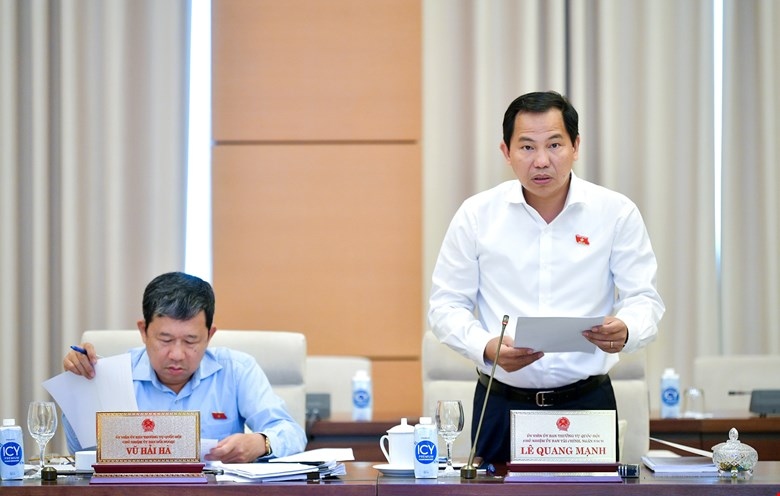
Mr. Le Quang Manh, Chairman of the Finance and Budget Committee
The first perspective suggested maintaining the current regulations as the VAT is an indirect tax, and the ultimate VAT burden falls on end consumers. Transferring fertilizers to the 5% tax bracket would significantly impact farmers and fishermen as fertilizer prices would increase due to the VAT, leading to higher production costs for agricultural products. This goes against the spirit of encouraging agriculture, farmers, and rural development as outlined in Resolution No. 19-NQ/TW.
The second perspective concurred with the draft Law and the drafting agency. They argued that Law No. 71/2014/QH13, which exempted fertilizers from the 5% VAT rate, created significant policy inconsistencies and negatively impacted domestic fertilizer producers over the past decade. These businesses were unable to claim VAT refunds on their input taxes (including investment and asset purchases), forcing them to account for these expenses as costs, increasing production costs and prices. As a result, they couldn’t compete with imported fertilizers, which were previously taxed but are now exempt.
Addressing this policy inconsistency is essential for the VAT system. Reverting to the 5% tax rate will impact the market price of fertilizers, increasing the cost of imported fertilizers (currently holding 26.7% market share) while decreasing the cost of domestically produced fertilizers (holding 73% market share). Domestic fertilizer producers will benefit from VAT refunds as the output tax (5%) will be lower than the input tax (10%). There will be no net increase in state budget revenue as the additional revenue from imports will be offset by the refunds to domestic producers. Domestic enterprises have the potential to reduce their selling prices if international prices for fertilizers and raw materials remain stable.
Additionally, fertilizers are currently a price-stabilized commodity, so if necessary, the government can implement measures to stabilize prices at reasonable levels.
“The majority of the Finance and Budget Committee’s Standing Committee lean towards the first perspective. The drafting agency proposes to maintain the draft law as presented at the 7th session. Based on the National Assembly Standing Committee’s feedback, the Finance and Budget Committee will revise and finalize the draft law,” said Mr. Le Quang Manh.
Concerns for Farmers’ Welfare
Mr. Vu Hong Thanh, Chairman of the Economic Committee, expressed his view on this matter, stating that imposing the aforementioned tax rate would disadvantage farmers as they are the end consumers and would bear the burden of increased prices due to the indirect nature of VAT.
“While imposing VAT on fertilizers will help domestic producers compete with imports, we must also protect our farmers,” said Mr. Vu Hong Thanh.
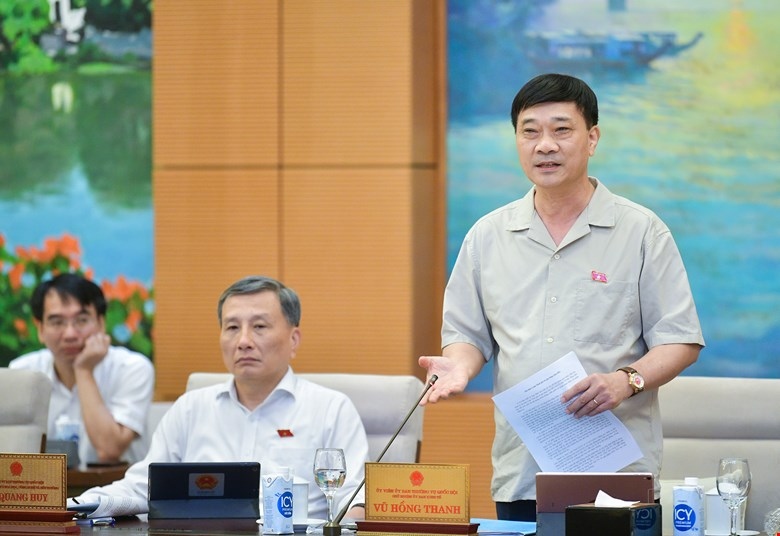
Mr. Vu Hong Thanh, Chairman of the Economic Committee
Meanwhile, Mr. Dau Anh Tuan, Vice Secretary General of the Vietnam Chamber of Commerce and Industry (VCCI), presented calculations indicating that the average production cost for enterprises is around 6-8%, which is higher than the government’s proposed tax rate in the draft. This means that domestic fertilizer producers have been paying VAT without being able to claim refunds. Additionally, imported goods are exempt from this tax, leading to unfair competition with domestically produced goods.
Addressing concerns about price increases due to taxation, Mr. Dau Anh Tuan stated that there is no basis for such worries. Domestic enterprises have significant production capacity, and if the 5% tax rate is applied, it will impact the production cost of domestic fertilizers (currently holding over 73% market share). These enterprises will benefit from VAT refunds, and they have the potential to reduce selling prices and capture market share.
Furthermore, fertilizers are included in the price stabilization program, so the government can intervene with necessary measures to stabilize prices if required. “This is a fundamental equation that needs to be carefully calculated to ensure both self-reliance in production capacity and the sustainability of the domestic fertilizer industry,” Mr. Tuan emphasized.
Mr. Nguyen Truong Giang, Vice Chairman of the Legal Committee, referred to the impact assessment report, which indicated that if the proposed 5% tax rate is applied, the state budget would collect approximately VND 5,700 billion annually, including VND 1,500 billion in tax refunds for enterprises, resulting in a net gain of VND 4,200 billion for the state budget.
“I find it unconvincing that imposing a 5,700 billion VND tax on fertilizer users will lead to reduced selling prices. We need a more detailed assessment of this aspect. Because selling prices are influenced by global market dynamics, not just production costs,” said Mr. Nguyen Truong Giang.
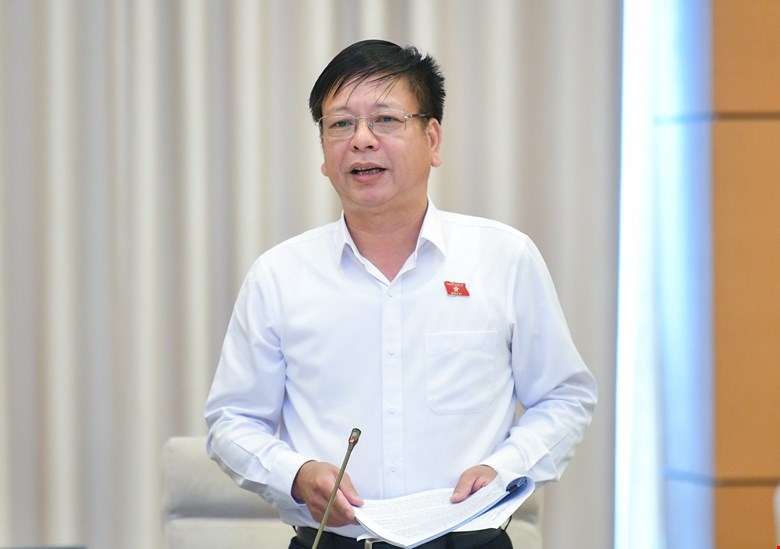
Mr. Nguyen Truong Giang, Vice Chairman of the Legal Committee
The Vice Chairman of the Legal Committee emphasized that, according to current regulations, fertilizers are not subject to VAT, which is different from a 0% tax rate. As a result, enterprises are not entitled to VAT refunds on their input taxes. He proposed a 0% tax rate, which would allow enterprises to claim VAT refunds, resulting in a “loss” of approximately VND 1,500 billion per year for the state budget. However, this option would keep prices stable for farmers without any increases.
Vice President of the National Assembly, Mr. Nguyen Duc Hai, requested that the Ministry of Finance, as the drafting agency, continue to review and align with the reviewing agency to finalize the draft law for submission to the National Assembly for consideration and approval at the 8th session in October.
The most extensive bribery case ever in Thanh Hoa: Numerous suspects prosecuted for “Giving and Receiving Bribes”
The Provincial Security Investigation Agency (PSIA) of Thanh Hoa province announced on January 31st that it has made the decision to initiate a prosecution against 23 individuals in connection with the offenses of “Accepting bribes” and “Giving bribes” as stipulated in Article 354(3) and Article 364(2) of the Criminal Code.
Mobile World achieves revenue of VND118,000 trillion: TVs, tablets, and phones all decrease by 10% – 50%, while one product grows in both quantity and revenue.
Mobile World Investment Corporation (MWG) has recently announced its 2023 business results. According to the report, the company’s consolidated revenue reached over 118 trillion Vietnamese dong, equivalent to 89% of the revenue in 2022.

